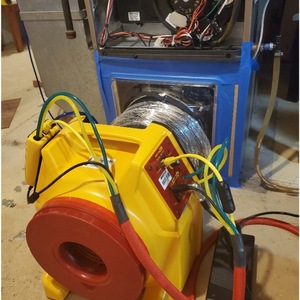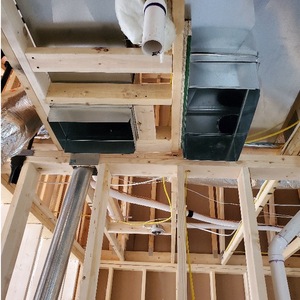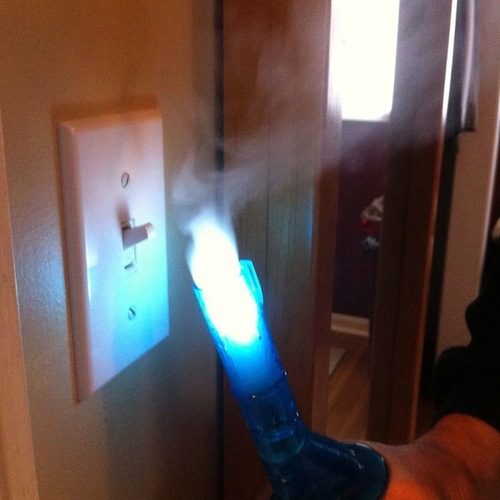
Image Credit: Energy Vanguard
My day job involves retrofitting existing buildings, but a couple evenings each month, I perform air leakage testing on new homes. New York State Code began requiring blower door tests for new construction in 2016, following the lead of the 2015 International Energy Conservation Code (IECC).
Most of my new-construction customers are owner-builders or small-volume contractors whose work involves a mix of remodels, additions, and the occasional new home. For many, this is their first blower door test. While I’m testing the house, I find myself doing a lot of education—about the benefits of air sealing, high-priority leakage locations, and how to ensure good air quality (IAQ) in a tight house.
I enjoy the educational aspect of the work. But too often, I’m brought in at the tail end of the building process when air leakage problems are difficult—and expensive—to fix. I find myself wishing I could reach builders earlier, at the design and framing stages. Here are the key points I’d like builders to know:
Air sealing offers multiple benefits
I sometimes have to counter the perception that blower door testing is just one more box that needs to be checked to get the certificate of occupancy. I try to help people understand that air sealing delivers several benefits:
Weekly Newsletter
Get building science and energy efficiency advice, plus special offers, in your inbox.

This article is only available to GBA Prime Members
Sign up for a free trial and get instant access to this article as well as GBA’s complete library of premium articles and construction details.
Start Free TrialAlready a member? Log in















4 Comments
Good article Jon! Another area I'm trying to do more education is with some of the other trades. Electrical, plumbing and HVAC crews. The projects I'm directly involved with, most of the subcontractors on the job know what I'm looking for, one hole, one wire, each pipe in an ASHP line set has it's own hole through the wall, etc...But in the home's I test for code compliance, there's still a lot of work to be done. Just like you, I'm often there to blower door test right before the homeowners are moving in. The photos are a couple of common issues I see in my market, not sealing the conduit containing the electrical service conductors and open mud rings on exterior walls used for low-voltage wiring. Training the trades can be a good opportunity to improve blower door numbers, we just need to figure out how to get everyone on the same page at the beginning of the project instead of finding the issues at the end. Like you said, engage with an expert early.
Thanks, Randy. I have definitely seen the air leaks you mention! I go back and forth on whether it makes sense to have the mechanical trades do their own air sealing, or whether that should fall on the GC and envelope contractor. I think it can work well either way as long as we get buy-in from those involved.
Bought an older (1995, zone 6) home with all the problems you mention, complete with the tongue and groove ceilings with an unconditioned attic with fiberglass batts above and kneewalls. Been extraordinarily time-consuming to retrofit on our own (no labor available except us amateurs), and I'm sure our blower door numbers would still be poor. We're mostly trying to make it "good enough" until we build something new. Our local contractors have not heard of air sealing or ERVs and think houses need to breathe, so we'll probably be waiting a while until there's enough expertise in the area.
There will be huge benefits in getting your house from where it is to "good enough," and the things you learn in the process will allow you to take your planned new build to the next level. It is very time consuming work. If you can have a blower door test done on your current home sooner rather than later, it may help you target that work for maximum impact.
Log in or become a member to post a comment.
Sign up Log in